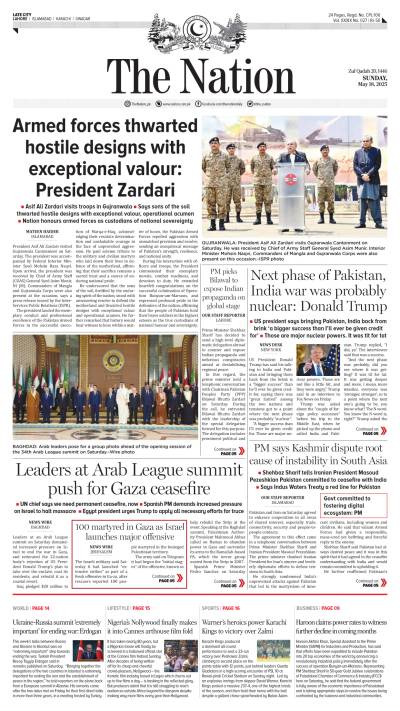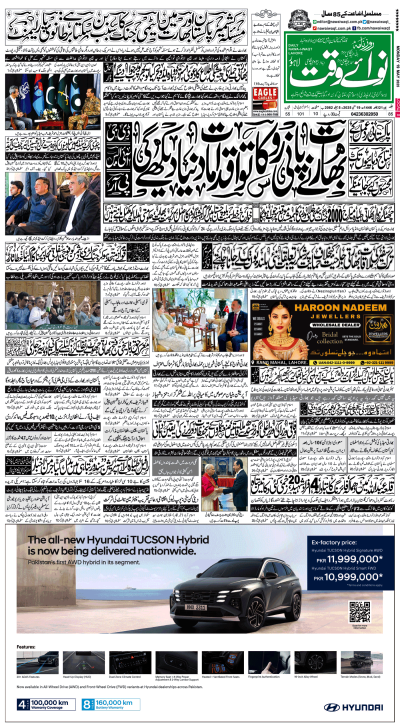Salman Ali - Pakistan’s is often described as weak polity because of its poor democratic credentials. Civil society in Pakistan is divided along modern-secular and traditional-religious lines. The conflict between the two segments of civil society manifests itself in many ways because of conflicting ideologies and world-views. This conflict is deeply rooted in socio-political history of Pakistan and continues to grow multifold.
State has increased its power at the expense of civil society and the non-representative power centers control the reins of society and politics. Civil society in Pakistan in its present form draws a vibrant, multidimensional and dynamic but fragmented picture where the divisions are too deep to establish and promote democratic structures and secular attributes.
In the political context, "civil society" refers to all organised forms apart from the government. In a publication of UNDP in 2009 it’s mentioned that 62 percent civil society organizations have been registered in Pakistan. We can say 56,000 registered organizations and 45,000 active organizations which are working in present time. But 38 percent civil society organizations are unregistered which include those who have applied for registration or not interested in registration.
In 1980’s NGOs become a major phenomenon in the field of development. In Pakistan it emerged in the early 1980s marked by a strong belief and desire in its potential to strengthen democracy and democratic institutions and focusing on issues such as accountability, credibility of the state institutions, and equal distribution and allocation of resources. In practice though, the boundaries between state, civil society, family and market are often blurred. But sadly Pakistan’s civil society presents a distorted picture and this dilemma has been created by disregard for constitutionalism. Conditions required to create and sustain a Western kind of civil society are either missing or very different in Pakistan’s case, therefore the Western expectations of creation of democracy, pluralism and openness remain unfulfilled.
In his view, civil society can only claim but in reality they can’t do anything because role of resistance of the civil society organizations gradually weakening and minimizing, especially in the context of structure, environment, values and impact.
We can see in past few years the role of civil society was very much clear and different stakeholders played a very effective role to mobilize the people and create a strong resistance. But presently the scene has changed with no time because most of the people's organisations and their struggle is linked with groups like students, media, trade unions, etc. these all people previously were working voluntarily which always created a mass movement. The situation is completely different now as student unions are banned and media and political parties are not playing a pro-active role and their policies revolve around donor-driven agenda.
I don’t believe that Ngo only do money plundering and don’t work for the betterment of society but some of the clever participants turn this opportunity to their own favors by manipulating different NGOs to get funds in the name of social work. They know that projects are foreign funded and there is no commitment and sincerity behind it. Most NGOs have more or less become family business making big profit as if you are a good pretender you can generate huge funds.
I believe NGOs role is to prepare people for change. They empower the people to overcome psychological problem and opposition of oppress through these funds. Its role cannot be denied. An Ngo is nowadays not expected to deliver directly some benefits to people, but to motivate people, mobilize resources, initiate leadership, and participate in development programmes for self reliance.
The positive thing is the expansion of these organisations and their struggle at the local level both the infrastructure and rights issues. The dilemma of the civil society organisations is that their networking, especially at the grass root level is very weak and getting even weaker. The civil society phenomenon is urban-based and does not link effectively with the rural areas
“Critics have observed this all about NGOs in Pakistan and so there are as many statements as there are faces.
According to one of these critics most of these NGOs are headed by influential, politician, bureaucrats and rich people/elite. These are the people who plunder in the name of "NGOs" and deprive the deserving people of their rights. There are NGO people who were riding on bicycles in the past, now own more than one vehicle. It’s seen by all of us that those had pennies in their pocket until yesterday now having accounts in millions of dollar, what to say accounts in rupees. The ill-mannered people now have their meals in five star hotels." What these NGOs and civil society are doing? Nothing! But plundering money.
I believe the role of civil societies in the country it is very clear that the civil societies are not an alternative to the state and government. Civil societies should not emphasize on developing their own structure because it's not possible at all. The role of civil society organisations should be to support and help marginalized groups through monitoring state and government functioning, develop alternative policies, and mobilisation through social and political education and collaboration.
The writer can be reached at salmanali088@gmail.com
Monday, May 19, 2025
Civil Society: Myth or Reality!

Caption: Civil Society: Myth or Reality!
-
Lahore emerges among safest global cities in Numbeo 2025 index
-
Lahore emerges among safest global cities in Numbeo 2025 index
-
India’s suspension of Indus Water Treaty legally baseless
-
Seventh polio case reported in Pakistan amid nationwide vaccination drive
-
Pakistan reports sixth polio case of 2025
-
PTA begins issuing VPN licences to regulate usage
Culture Shift
May 18, 2025
Tactical Shift
May 18, 2025
Unmasked Cruelty
May 18, 2025
India Isolated
May 17, 2025
Descent into Hell
May 17, 2025
Pakistan’s Strategic Edge
May 19, 2025
Lessons for India
May 19, 2025
Galiyat’s Poor Network Services
May 19, 2025
A City in Neglect
May 19, 2025
Rising Cost of Living
May 19, 2025
ePaper - Nawaiwaqt
Nawaiwaqt Group | Copyright © 2025





